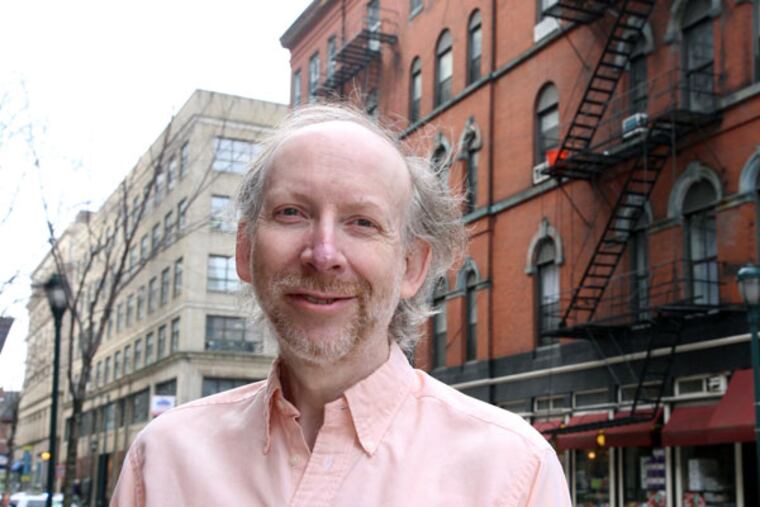The Interview: 'Notebook' editor Paul Socolar
PUBLIC SCHOOLS watchdog Paul Socolar, 59, announced last month that he's leaving his longtime post as editor/publisher of The Notebook at the end of the year. But he's not yet test-driving rocking chairs or fishing lures.

PUBLIC SCHOOLS watchdog Paul Socolar, 59, announced last month that he's leaving his longtime post as editor/publisher of The Notebook at the end of the year. But he's not yet test-driving rocking chairs or fishing lures.
The West Mount Airy resident hopes to land a job where he'll continue to report and investigate - but also have the flexibility to spend more time with his parents, Sid and Sandy, 91 and 98 years old, respectively. (Mom was a longtime volunteer proofreader for The Notebook, well into her 90s.)
Socolar took the helm at The Notebook in 1999. He was a parent-volunteer with the group that launched the publication in 1993, shortly after Commonwealth Court Judge Doris Smith issued an order to desegregate the school district. That scathing ruling "highlighted the racial inequities in the system and ordered the district to address them," Socolar said. "It was kind of a call to arms for us."
Socolar and his wife Sukey Blanc, an education researcher, have been together for 30 years. They have two daughters, Robin, 29, and Elena, 26, both graduates of district schools. He spoke to Daily News staff writer Regina Medina.
Q What issues plagued the district when you launched The Notebook, and how do they compare to today's challenges?
The funding issue, obviously, is still with us. The issue of racial equity and disparity in schools is still with us. The issue of low student performance for struggling schools is still very much with us.
And parent involvement - whether parents had a say with what went on with their schools. That was one I felt very personally about because I came to this work as someone who was an involved parent at C.W. Henry School.
One thing that's different now is that people have somewhat more of a handle on the problems in the schools because we know, for instance, what the graduation rate is districtwide. It was really hard to get that kind of information in the mid-'90s. We're not as starved for information about how our schools are doing.
Q How did The Notebook get started?
I had the idea that a newspaper focused on Philly schools, which was something that existed in a couple of other cities, could really help. I made some calls and discovered that some other people were thinking the same thing. We had a meeting, pulled together a group of education activists. Some of us also had a background in journalism.
We had a racially diverse group of teachers, parents, community people, people involved in special education issues - and we raised a little bit of money and put out a 12-page edition in May 1994.
Q Why was it needed?
Part of the idea for The Notebook was to have a place to go where involved parents could go to get information to make sense of what was going on.
I realized it was a daunting task to be an involved parent in Philadelphia schools and to understand all the things that you want to understand in order to make things better for your kids and other people's kids.
Q When did the school district start paying attention?
It took several years to be recognized as a legitimate part of the press corps. We didn't publish like clockwork.
Later, we came out on schedule four times a year. Part of the impact came when people started seeing it regularly.
During the state takeover in 2001 and '02, people at the district realized that folks were coming to The Notebook to find out what was going on. There was a lot of secrecy and a lot of backroom discussion, and we were trying to uncover that. District officials started to recognize that we were a news source to be reckoned with.
Q What are The Notebook's biggest accomplishments?
The reporting that my Notebook and Newsworks colleagues did at uncovering the statewide cheating scandal . . . It shouldn't have been a surprise to anyone because there was such intense pressure on school staff, from the principal on down. Nobody was watching, or everybody was looking the other way.
Earlier - and something that was my doing - Paul Vallas brought in zero-tolerance discipline policies, and through asking for various reports I uncovered that kindergarteners were being suspended at high rates.
The story was immediately picked up by the New York Times and the mayor's staff, and the district introduced a new set of rules.